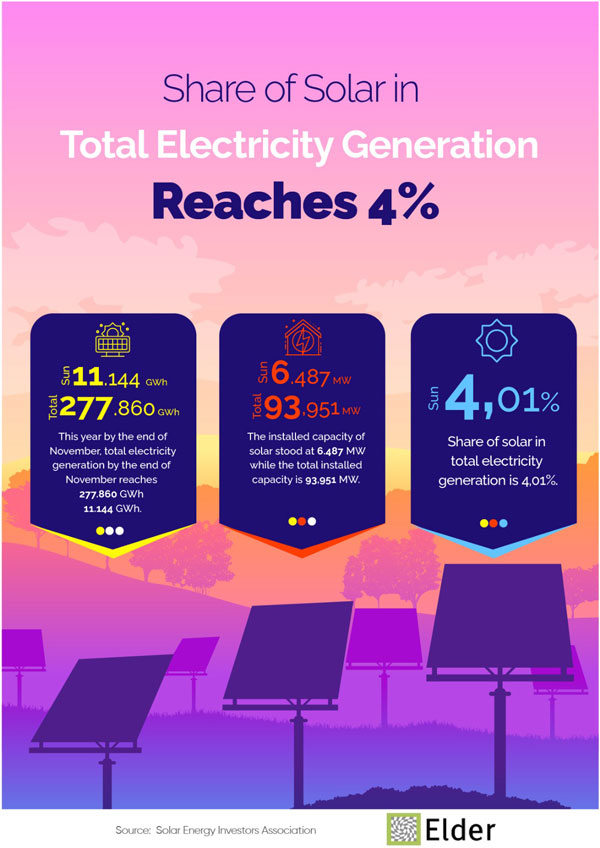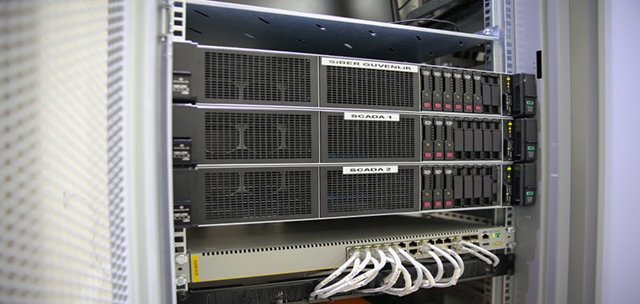
Turkey's state-owned electricity generation company EUAS will use local automation systems to be better protected from cyberattacks and contribute to the national economy. General Manager of EUAS Izzet Alagoz said that they formed a 14-person engineer team within auspices of the Energy and Natural Resources Ministry, which developed electrical automation systems with domestic capabilities.
“We worked even during nights because we feel responsibility due to people’s trust in us. Our vision was domestic and national technology. Now, we are proud of our engineers, who achieved this,” he told Anadolu Agency (AA) Monday.
The electrical automation systems have started to operate at the Kepez-2 hydroelectric power plant in southern Turkey’s Antalya and in the 300-megawatt plant in the Borcka district of northeastern Turkey’s Artvin, Alagoz said.
Stressing that power plants are renewed every 10 years, Alagoz said the production of the local automation systems prevented Turkey from having to spend approximately $600 million to import equivalent systems.
“Now we have manufactured a control system that can be used in the entire industry of the country. Next year, we will switch to this system in Sariyar, Hirfanli, Sir, Berke and Seyhan hydroelectric power plants. We will apply the system to all EUAS power plants in 2022 and 2023. With the control system we have formed, we become only holders of keys. There are no doors left for cyberattacks on the system,” he said.
Source: Daily Sabah
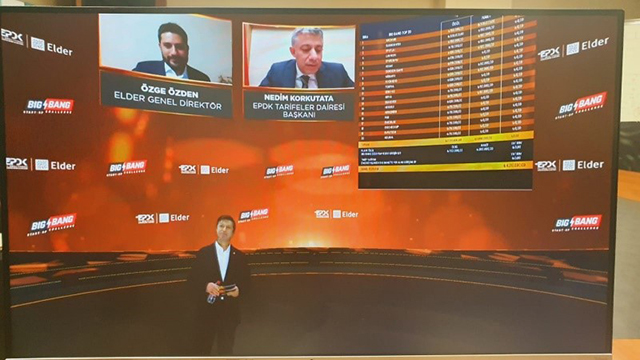
EMRA and ELDER awarded a total of 100 thousand TL to two entrepreneurs who made it to the finals in the Big Bang Start-up Challenge competition organized by ITU Cekirdek.
The Big Bang Start-up Challenge competition, which is organized every year by ITU Cekirdek within the body of Istanbul Technical University (ITU) Ari Teknokent and where the best of new initiatives are brought together with awards and investments, was held online this year by the motto "Rise Together". Entrepreneurs who were deemed successful in the field of energy in the competition were awarded a total of 100 thousand TL awards by the Energy Market Regulatory Authority (EMRA) and Electricity Distribution Services Association - ELDER.
"Entrepreneurs Should Work Together with The Sector"
Nedim Korkutata, Head of EMRA Tariffs Department said that with the regulations made in the 2011-2014 period, electricity distribution companies increased the share of R&D in their budgets from 1 percent to 2 percent, which corresponds to 400 million TL. He said, “We supported various projects conducted by the industry regarding national smart meters and local software. In the upcoming period, we plan to make some regulations that will encourage domestic products in the purchases of electricity distribution companies”
"We Follow the Innovation Works Closely”
Ozge Ozden, ELDER General Director stated that they closely follow their initiatives and innovation works such as electrification, localization, digitization and decarbonization and Turkey has a serious potential in this area.
Entrepreneurs Awarded by EMRA and ELDER
In this year, including Albania, Azerbaijan, India, Iran, Montenegro, Kosovo, Lebanon, Macedonia, Malaysia, Nigeria, Pakistan, Romania, Serbia and Tunisia which included 20 different countries and Turkey 81 thousands from different cities application received at ITU Cekirdek and 20 technology initiatives have been identified that will take to the virtual stage of the Big Bang Start-up Challenge on December 3.
The entrepreneurs who were awarded the awards of EMRA and ELDER in the Big Bang Start-up Challenge competition were as follows:
Airsqreen: By connecting to all digital billboards in the world, it enables advertisers to easily advertise on the screens they want.
Algae Biodiesel: It produces biofuels and chemicals from microalgae by purifying wastewater and flue gases to reduce global warming.
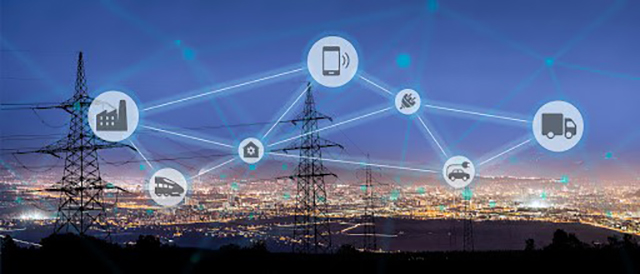
SP Group’s annual Smart Grid Index indicates that most utilities are embracing new technologies in response to industry challenges. The survey shows that North America continues to lead smart grid development, which can be traced to the region’s early adoption of the technologies.
However, over the past year Europe has improved the most, in comparison to other regions of the world. Globally, there has been increased focus on data analytics, particularly in Asia Pacific, as well as cybersecurity. But supply reliability issues, as measured by SAIDI and SAIFI, are lagging. The 2020 issue of the Smart Grid Index is SP Group’s third annual benchmarking of the smartness of power grids globally. The index is intended as a simple and quantifiable framework and draws on publicly available information to assess smart grid status in seven dimensions – monitoring and control; data analytics; supply reliability; distributed energy resource integration; green energy; security; and customer empowerment and satisfaction. The 2020 Smart Grid Index benchmarks a total of 85 utilities across 37 countries and markets.
British network operator UK Power Networks tops the list, rising to first place and displacing the previous number one, Pacific Gas & Electric, into second place.
UK Power Networks has been ranked first in the UK and Europe since the first study in 2018, and its advancement in the past year can be attributed particularly to progress in renewable energy penetration, electric vehicle facilitation and OT and IT cybersecurity.
Another British network operator Western Power Distribution is in third place, with a much increased score since 2019. Others in the top five are the New York energy company Con Edison and Victoria, Australia distributor CitiPower. All of these have now overtaken the previous top rankers, Southern California Edison, San Diego Gas & Electric and Italy’s e-distribuzione, which have little or no recorded progress over the past year.
At the opposite end of the rankings are Buenos Aires distributor Edesur and City Power from Johannesburg, South Africa. While both have increased scores over the previous year, the low scores and the absence of utilities from Latin America and Africa in the listing is indicative likely in part to a lack of information but more generally to the limited progress in smart grids in these regions.
Source: Smart Energy International
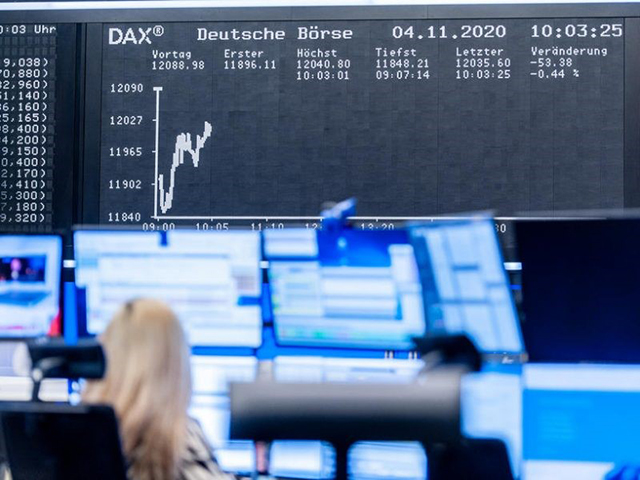
Two-thirds of the Paris Agreement signatories are using or considering carbon pricing schemes to achieve their emission reduction targets. The EU, China, and the USA should lead a worldwide “carbon pricing coalition” for the period 2030-2050, argue Jyrki Katainen and Karl-Henrik Sundstrom. Climate change is accelerating. Several countries have set climate targets but the investment level for clean solutions is too low. Only a fraction of greenhouse gases has an effective price. If we do not fix this soon, investments will not be made in the volume needed.
We need to have a strong coalition to scale up the carbon price, and this coalition needs to include the EU, China, and the USA. The Paris Agreement set the scene and it is now time to act. Many parties to the Paris Agreement have announced climate neutrality targets – China for 2060, the EU, Japan, South Korea, Canada, the UK, and New Zealand for 2050, Sweden for 2045 and Finland for 2035. The President-elect Joe Biden and his transition team are aiming for the US to achieve net-zero emissions no later than 2050.
This is all good news, but even with this taken into account, the world is still heading towards a global temperature of above 2°C. The average global temperature has risen by about 1.1°C and the last five years have been the five hottest. This year is likely to follow suit. The annual global average carbon dioxide grew to 410 parts per million in 2019 and has continued to rise in 2020 despite COVID-19 lockdowns. In 2019, the additional energy supply by renewables and nuclear energy was bigger than the additional supply by fossil energy. A year earlier, fossil energy still dominated with over double the share of renewables and nuclear energy.
This is promising, but the speed of change is still too slow. It is estimated that the level of ambition needs to be roughly tripled to align with the 2°C limit and must be increased around fivefold to align with the 1.5°C limit.
The best way to ramp up non-CO2-emitting investments and to ramp down emitting ones would be to set an effective price for greenhouse gases. Today, we are still far away from this. Only about 22% of global greenhouse gas emissions are covered by carbon pricing initiatives, and less than 5% of GHG emissions are within the recommended range of USD 40–80/tCO2.
About half of covered emissions are priced at less than USD 10/tCO2e, and the global average carbon price is USD 2/tCO2. Last year, governments applying carbon pricing raised about USD 45 billion revenues, whereas direct fossil subsidies were USD 478 billion. The indirect costs of climate change are above USD 5 trillion per year. This means that we “penalise” GHG emissions by one monetary unit, support fossil fuels with ten units and do not care about costs that are a hundred times bigger.
During the last five years, the coverage of carbon pricing has increased by less than two percentage points per annum. If we do not have a step change for this, we will not get the investments from the private sector that are required in order to mitigate climate change on time. With public money, we could ramp up the investments to some extent, but in the EU, for example, our view is that the vast majority of investments – close to or above 80% – need to come directly from the private sector.
The Climate Leadership Coalition has a proposal: we propose that the EU, China, and the USA should drive carbon price development, supported by the interested parties. Two-thirds of Paris Agreement signatories are using or considering the use of carbon pricing to achieve their emission reduction targets. This ‘carbon pricing coalition’ should start to plan the carbon pricing architecture for the period 2030-2050. If private investors would trust that CO2-prices will be at an adequate level between 2030-2050, this would start to have major effects even today and many new projects would be initiated well before 2030.
Source: Euractiv
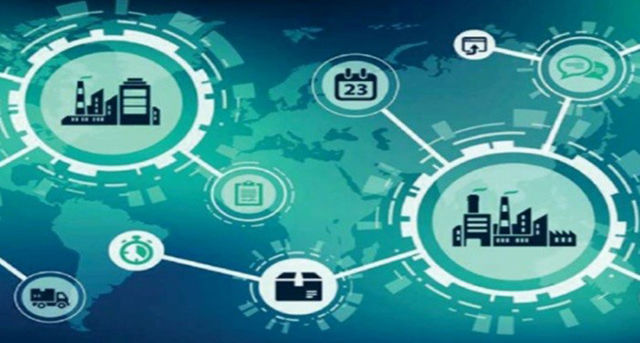
Efficient data management is key to enabling the new functionalities of the energy system, stresses the European Distribution System Operators E.DSO. The association points out in a new white paper that DSOs have profound experience in meter data management and this role has traditionally been accepted. However, new requirements are emerging with the energy transition with the connection of the majority of customer distributed energy resources and the introduction of new business models to enable their participation in the system.
Currently the DSOs support the electricity market with data collection and processing by administering metering points, providing information for billing, supporting supplier switching, facilitating the settlement process, providing information to local authorities, cooperating with transmission system operators and monitoring, planning and operating their networks. In their role as market facilitators, DSOs obtain grid data, customer data and market data, which they are intended to share in an efficient, transparent and non-discriminatory way to all eligible parties.
Thus the management of data remains crucial to operate the distribution system flexibly while responding to customer needs and managing critical situations appropriately, says the white paper. Emerging requirements regarding data management are identified with the participation of distributed resources in flexibility services from demand side response, congestion management and balancing mechanisms.
E.DSO states that a crucial aspect of data management is the exchange of data, especially across information systems of different stakeholders. Thus interoperability is required.
There is a competition of platforms and ecosystems for cross sectoral and cross border data exchanges. Single solutions such as centralised cross border exchange platforms cause regulation and governance challenges.
A core reference model giving transparency to the market via a comparison of national processes would be a practical and cost efficient way forward to reduce market entry barriers for individual service providers. The paper advocates for DSOs to perform the role of Meter Data Operator, with the economies of scale and scope that they offer as an independent operator. The paper also notes that the decentralisation of the energy system forces a bottom up decentralised data management approach starting at the customers in order to allow the secure and efficient functioning of the distribution grids.
Source: Smart Energy International
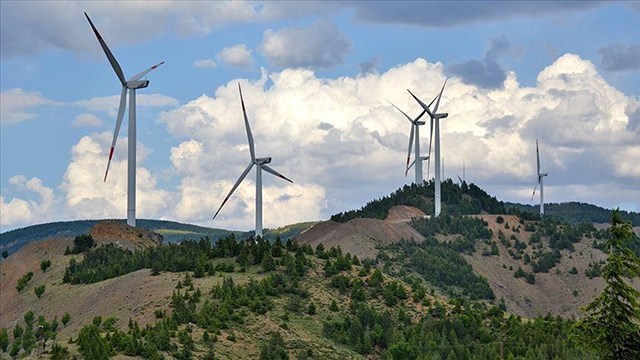
The “Paris effect” has led to an unexpectedly rapid shift towards a low-carbon economy, a new report says. The plummeting price of renewable sources of electricity, such as solar and offshore wind, has made low-carbon power “cost-competitive” when compared to fossil fuels – at a greater speed than once thought possible, according to the report.
The rise of cheap renewable power means “zero-carbon solutions” are now competitive in a sector representing around 25 per cent of global emissions, the report says. This change has happened in just five years, it added.
Lord Nicholas Stern, chair of the Grantham Research Institute on Climate Change and the Environment at the London School of Economics and chair of Systemiq, the global consultancy behind the report, said: “Paris was a turning point. Many of us have been working on climate change for a very long time, but Paris has changed expectations. It was a major step for the world.
“The world saw China, Europe and the US recognising together that this was the big challenge of our time and identifying the route to go down. “That was countries, but it is firms in particular that make innovations and investments. And it is firms that have been seeing where the future is, innovating and driving down the costs of the cleaner way of doing things.”
Since a deal for the Paris Agreement was reached five years ago, global greenhouse emissions have continued to rise. And a report released in 2017 found that, since the 1980s, just 70 companies have been the source of more than 70 per cent of the world’s greenhouse gas emissions. However, there is a “growing awareness” in the business world of how adopting low-carbon solutions can be “cost effective”, said Lord Stern.
“Recognition of needing to reach net zero has given people a guiding path, a north star if you like,” he said. “That’s been a really important part of firms committing themselves. And as they have committed themselves, they have found out that being responsible goes along with good performance.”
The report estimates that, by 2030, zero-carbon solutions could become cost competitive in sectors representing more than 70 per cent of global emissions. This is because the cost of zero-carbon solutions outside of the power sector are also set to fall throughout the 2020s, the report said. For example, electric cars are set to become more cost competitive in the next few years. By 2024, electric cars could hit a “market tipping point” at which “they will have surpassed petrol and diesel cars in almost every car buyer purchase criterion: equal on upfront cost and range, a fraction of the cost to run and maintain, and better acceleration”, according to the report.
However, it is worth noting that there are some sectors of the economy where “zero-carbon solutions” are still far from being a reality, including aviation and red meat production.
Commenting on the new report, Laurence Tubiana, a key architect of the Paris Agreement, said: “It is clear the global long-term goal of Paris – net-zero greenhouse emissions by mid century – is now the reference point for governments and financial actors. “World leaders started a journey in 2015 and now is the time to accelerate. We know global temperatures and emissions are rising but this assessment should give us hope that the Paris Agreement is working.”
The report comes a day after the UK’s independent climate advisers set out a world first path for how the country could hit its net-zero target by 2050.
The Climate Change Committee (CCC) found that the UK could achieve its net-zero goal at a cost of less than 1 per cent of the country’s annual GDP over the next 30 years.
The affordability of hitting net zero is linked to falling renewable power prices, and the savings that could be made from cutting back on costly fossil fuels in the transport and housing sectors.
Source: Independent
Fostering a Blue Economy: Offshore Renewable Energy
Offshore renewable energy – including offshore wind and solar power, as well as emerging ocean energy technologies – could support sustainable long-term development and drive a vibrant blue economy. For countries and communities around the world, offshore renewables can provide reliable, stable electricity, as well as support water desalination and aquaculture.
This report from the International Renewable Energy Agency (IRENA) considers the status and prospects of offshore renewable sources and recommends key actions to accelerate their uptake.
Please click here to read the full report.
Istanbul Competition Forum Annual Webinar
15 - 16 December 2020
EMRA & ELDER & ODTU TEKNOKENT Energy is You Enterpreneurship Program
20 December 2020
Global DSO Event
26 - 27 January 2021
Eurelectric- e-vision: Accelerating Fleet Electrification
2 - 3 February 2021
11. Turkey Energy Summit
29 - 30 March 2021
European Utility Week (Enlit Europe)
30 November - 2 December 2021

